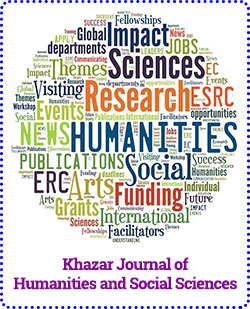Globalization and Loss: Place, Displacements and Binary in Olu Obafemi’s Wheels
DOI:
https://doi.org/10.5782/2223-2621.2023.26.2.122Keywords:
Globalization, displacement, identity, Wheels, binary oppositionAbstract
One of the central mantras of globalization, from the purview of the West and other self-acclaimed first world countries, is the need to take progressive and innovative ideas and thoughts to third and fourth world countries for all-round economic, political, social, and intellectual development and reinforcement. This very idea of globalization, by contrast, engenders displacements of identity and place and this has formed the core of critical reflection in postcolonial ecocriticism; that is, the idea of achieving a global community, from a western ideological construct, implicitly accounts for the depletion of the natural environment. Therefore, globalization becomes double critique since it both accounts for progress (for first world countries) and backwardness (for third world countries, fourth world countries and the nonhuman world). In the light of several arguments against and for globalization, this paper examines Olu Obafemi’s Wheels in relation to the self/other dichotomy. From the analysis of the selected text, it is discovered that the objectification of the third and fourth world countries and the nonhuman world in the process of globalization is the quest by Western forces to maintain the status quo of the hegemonic tendency inherent in the binary oppositions between the first world countries and the third and fourth world countries. While arguments in post-colonial studies investigate and distort the violent hierarchical oppositions of the self/other, this paper concludes that upturning the binary demonstrates that identity is forged within the context of difference – a free play of language between the two forces of signification and this suggests that the presence of one implicates the absence of the other and vice versa. Therefore, globalization, while being ambivalent, can shed its negative linings within the irresolvable and undecidable play of difference between the first world countries and the third and fourth world countries.
Downloads








